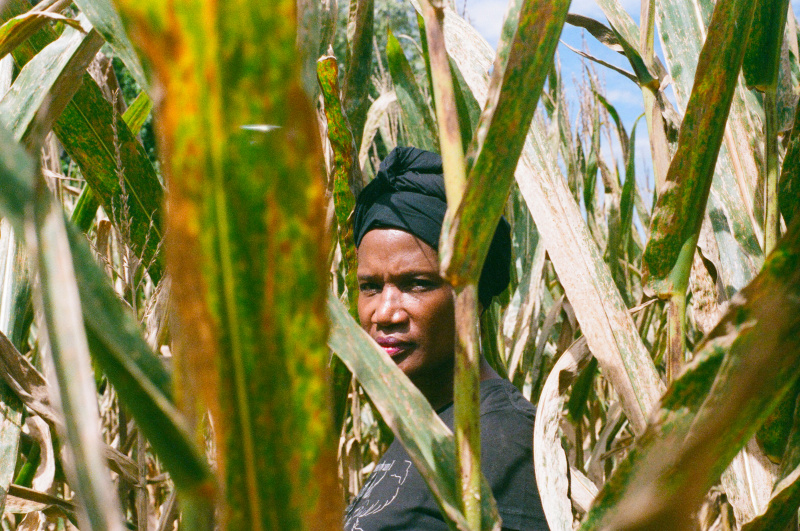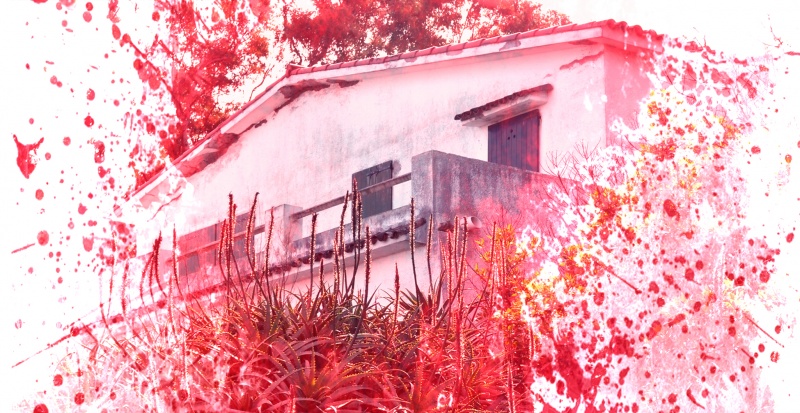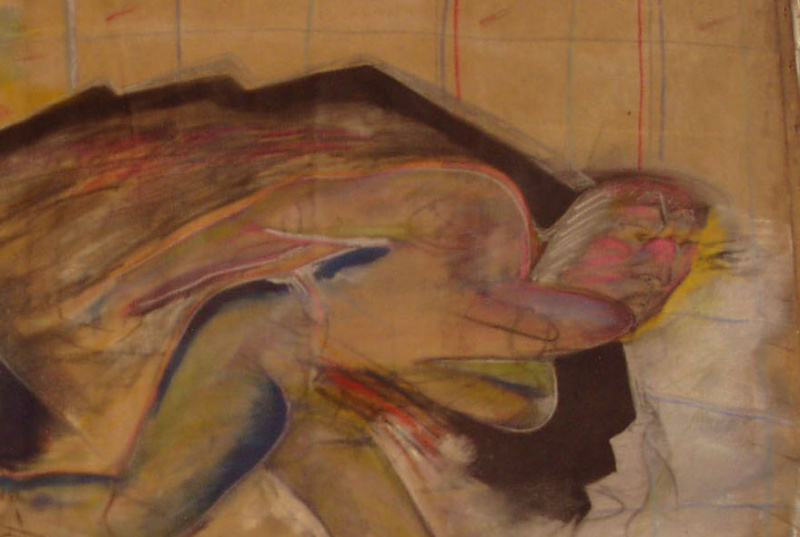Five projects from Argentina, Brazil, Spain, Switzerland and the USA have been selected in the fifth edition of the Ikusmira Berriak development and residencies programme for audiovisual projects. Of the 174 proposals sent in, the selection committee—comprising representatives from the International Centre for Contemporary Culture Tabakalera, the San Sebastián Film Festival and Elías Querejeta Film School—has selected Jo ta ke by Aitziber Olaskoaga, a film maker from the Autonomous Community of the Basque Country; Antier noche (The Night Before Yesterday) by Alberto Martín Menacho, in the Spanish film makers section; Sin dolor (Painless) by Michael Wahrmann, in the international category, and; two from among the participants in the most recent editions of Nest Film Students—All Dirt Roads Taste of Salt by Raven Jackson, and Un personaje volador (A Flying Character) by Martina Juncadella.
The residency programme has received a record number of proposals (12% more than last year and 427% more than in the first edition) and for the first time will be divided into two residencies in February and September, enabling the film makers to get the most out of their time.
The residents will develop their projects over four weeks between February and March, during which they will attend workshops for producers and directors and will be guided by members of the expert committee. In 2019the latter will comprise the Executive Director of TorinoFilmLab and of Scuola Holden in Turin, Savina Neirotti, the Brazilian director and script writer Sergio Oksman, and the German film maker Valeska Grisebach, new to this year’s programme.
From March to September the film makers will continue working on their projects and will receive online tutoring from the experts. In September they will return to San Sebastián to complete the final two weeks of their residency with their project more fully developed and ready to be shared with the film industry. During this last phase, residents will have the chance to attend a learning workshop on market conditions and will be prepped for their pitching session with a view to securing meetings with the industry professionals attending the Festival.
In Jo ta ke (Rise up to win), the visual artist Aitziber Olaskoaga (Bilbao, 1980)—director of the medium-length film La sonrisa telefónica (The Telephonic Smile) and collaborator on the films Faux Guide and Al Nervión (To The Nervión )—brings us a video essay on nationalism and the construction of national identity in the Basque Country. The short film starts out with the Negu Gorriak concert in 1990 outside Herrera de la Mancha prison and gives a first-hand account of the director’s awakening and personal search. It examines images from memory and thoughts on the political discourse of the Abertzale Left and discusses her father, from whom she has ‘inherited’ her political activism.
Alberto Martín Menacho (Madrid, 1986), director of Mi amado, las montañas (My Beloved, the Mountains) (Best Short Film at the Las Palmas de Gran Canaria International Film Festival), uses Antier noche to depict youth in today’s Southern Europe. The world of hunting meets mobile applications in this documentary feature film.
Michael Wahrmann (Montevideo, 1979) has already taken his first feature film (Avanti Popolo, 2012) to festivals such as Rotterdam and Marseilles, and premiered his short film The Beast (2016) at the Directors' Fortnight in Cannes. In Ikusmira Berriak he will develop the fictional feature film Sin dolor (Painless), co-written with Diego Lerer, about a retired French diplomat and his Brazilian wife who purchase an abandoned farm on an idyllic island in north-east Brazil, only to discover that it is inhabited by the descendants of an old German colony. The director describes the film as a social terror thriller which poses questions about limits, borders and the class war.
In All Dirt Roads Taste of Salt, the poet, photographer and film maker Raven Jackson (Tennessee) takes a poetic look at the nature of memory and at how events from one woman’s youth are reflected in her adult life, since she is 3 until she is 60, in Mississippi. Jackson's short film Nettles was premiered in the Nest Film Students section of the last San Sebastián Film Festival.
The short film Fiora by Martina Juncadella (Buenos Aires, 1992) was selected in the International Film Students Meeting at the 2017 San Sebastián Film Festival and won Best Short Film at BAFICI. In Un personaje volador, a writer attempts to work on his new book in the Ritz—a legendary hotel in central Buenos Aires—after separating from his partner and still grieving over the death of his mother.
Four projects selected from previous editions of Ikusmira Berriak have been completed and screened in San Sebastián: the short films El extraño (The Stranger) by Pablo Álvarez, Calipatria by Leo Calice and Gerhard Treml, and Gwendolyn Green by Tamyka Smith were screened at Zabaltegi-Tabakalera in 2016 and 2017, and the feature film Trote directed by Xacio Baño was shown at Zabaltegi-Tabakalera following its screening at the Locarno Festival. Maider Oleaga from Bilbao, another resident from the first edition, has just premiered Muga deitzen da pausoa (The Step Is Called Limit) at the Gijón International Film Festival.
Ikusmira Berriak is a programme that seeks to involve new talent as well as producers and representatives from the audiovisual industry who support innovation and new languages. It is organised by Tabakalera, the San Sebastián Film Festival and Elías Querejeta Film School in collaboration with REC Recording Studio and the Basque Film Archive, and is part of the legacy of San Sebastián 2016 European Capital of Culture.

In lyrical, non-linear portraits evoking the texture of memories, All Dirt Roads Taste of Salt viscerally and experientially explores the life of a black woman in the South of the United States - from youth to her older years.
A native of Tennessee, Raven Jackson is an award-winning filmmaker, poet, & photographer currently attending New York University's Graduate Film Program. In her work, gray areas of life are often explored. She is particularly interested in stories which add texture to the pivotal experience of coming-of-age and/or into one's sexuality - as well as the body's relationship to nature.
A 2018 IFP Marcie Bloom Fellow, her short film, Nettles, recently had its International Premiere at the 66th edition of the San Sebastián International Film Festival. Her work has been featured in The New York Times, TriQuarterly, Kweli, PANK, and elsewhere.
All Dirt Roads Taste Of Salt is, in essence, a lyrical conversation between all of the protagonist's selves at different ages and experiences in her life. The film is told non-linearly to speak to the nature of memory and how events from youth are often mirrored in adulthood. With All Dirt Roads Taste Of Salt , I'm exploring the significant shifts and sparks in the protagonist’s life and how the ripple of them spills out across years.

Hunting takes place in the countryside of southern Extremadura (Spain) during the cold winter months. Ana (20) and Juan Luis (25) are a young couple in charge of leading the dogs in this ritual event. For some time, Ana has been thinking about leaving her town for the capital. The two must negotiate the terms of their relationship and whether or not they want to stay together. Martín (11), Ana’s younger brother, is growing up in a rural environment alongside the violence of nature. A rupture in the present may evoke the memory of a fracture between an old world on its way out and an emerging modern one. Antier noche is the portrait of this youth.
(Madrid, 1986) Alberto grew up in Alcalá de Henares and now lives and works in Geneva. He is a film editor and director who studied Visual Arts at Geneva University of Art and Design. His work has been exhibited in arts centres, museums and international film festivals, including Musée de l’Elysée in Lausanne, Filmmuseum München, Entrevues Belfort and the International Film Festival Rotterdam. His film Mi amado, las montañas (My Beloved, the Mountains) won Best Short Film at the Las Palmas International Film Festival and the Peninsulas Prize at the Curtocircuíto International Film Festival in Santiago de Compostela.
Antier noche is something I’ve always heard my grandmother say. It refers to something that took place the night before yesterday. The past is narrated from the present. The piece stems from my wish to make a film in a forgotten corner of the world, with a group of young people I know and who I’ve already worked with. I wanted to rebuild their story with them, the same story that starts with my family in the 1960s, a time when emigration was one way that people adapted to a time of constant progress. It still is.

A retired French couple buys an abandoned house on a paradisiac island in northeastern Brazil. The island is more isolated than they had imagined. Arriving on their property, they are surprised to find a small fishing village inhabited by the descendants of an old German colony; strange scars on the villager’s bodies hide a secret kept for decades. This social horror thriller leads us into a class struggle over land and borders, raising questions about limits and different kinds of pain.
Michael is a director and producer. Born in Montevideo, Uruguay, lives in Brazil since 2004, he graduated in cinema at FAAP in Sao Paulo in 2007. His short films Avós (2009), Oma (2011), The Beast (2016) and his feature film Avanti Popolo (2012) were shown in many international and national festivals, as the Directors´ Fortnight in Cannes, Berlinale, Rotterdam and Brasília and received more than 60 awards over the years. As producer, he funded Sancho&Punta and produced feature films such as Los territorios by Ivan Granovsky; Invisible, by Pablo Giorgelli; Elon Não Acredita na Morte by Ricardo Alves Jr and others.
From the very beginning, this film came to me as a horror narrative. I'm not particularly fond of genre movies, and i never explored genre in my films before. Nevertheless, I thought this initial concept should be used for the basic dramatic structure of the film.
At the same time, what seems at first to be a clear genre construction should find a way to transcend the obvious into a more abstract audiovisual form. It should detach from the genre system and rules and turn into a personal expression on the fervent social and political issues of current brazil.

In 1990, Negu Gorriak played their first concert outside Herrera de la Mancha prison and later sold a VHS recording of the event. The tape became a symbol for followers of the Abertzale nationalist left wing. Jo ta ke is a video essay which uses images from the video and the director’s own memories as its starting point. It opens up reflections on the construction of national identity and the links between fatherland, father and patriotism. The project relates the author's political awakening in the politicised and polarised context of the Basque Country.
Work-in-progress - Jo ta ke, director, co-writer and co-producer.
2017 - Una alegría loca (Crazy Joy), direction, editing, sound and cinematography.
2017 - Top bill for the LA OLA film showcase, direction, cinematography and editing.
2016 - La sonrisa telefónica (The Telephonic Smile), direction, editing, screenplay and cinematography.
2011 - Faux guide, workshop together with Red Caballo.
In 1992 -the only year in which Negu Gorriak did not release a record- my mother ended an unhappy marriage. Though I’d never heard the word feminism, I began standing up to an authoritarian and misogynistic father figure. Years later, I asked myself why the followers of a leftist ideology could organise themselves to fight against certain forms of oppression and yet were incapable of doing the same against others, such as the patriarchy. These memories would pave the way for reflections on the links between father, fatherland and nationalist ideologies. Can images be tools for imagining other possibilities of past and future?

A writer in the depths of grief following his mother's death moves to an iconic hotel in central Buenos Aires. While tackling his next novel, he wanders the city with a roll of paintings he's unable to open. A series of chance and enlightening encounters with strangers complicate his life. One long night, he finally manages to unfurl the works his mother left behind. From now on, he won't be only himself: he’ll be Pablo, a lawless yet gentle beast, and Ursula, a bitter and melancholic woman. Three identities, three lives, all forged around a single experience.
Martina Juncadella (Buenos Aires, 1992) acts, films, writes poetry and co-directs the Argentine publishing house Socios Fundadores. In 2016 she took part in the Proyecto Documental film workshop coordinated by Andrés di Tella. During that time she worked on two short films: Mensajes (Messages) (2016), and Fiora (2017), the latter co-directed with Martín Vilela. Fiora was selected for EIECINE 2017 (International Film Students Meeting, part of the San Sebastián Film Festival).
In 2018, she directed No me imagino siendo vieja (I Can’t Imagine Being Old), a short film written in collaboration with Jacqueline Golbert, who also stars in the movie. The film had its international premiere at the 2018 Biarritz Latin Film Festival, where it won the Liziéres Prize. She has published the poetry collections 8 poemas (8 poems) (2015) and Prendan el horno (Turn on the oven) (Socios Fundadores, 2018).
How many identities fit into one life? How many do we know about? How many are we ignorant of?
At the origin of each one, and throughout its exploration, is the excitement of the possibilities that influence and define them. Un personaje volador sets this constellation in motion. Inspired by a writer (Iosi Havilio) who goes through a crisis after losing his mother, the Argentinian painter Mónica Rossi, the character sets out to meet other lives which are as fictional and real as his own, inhabiting and embodying each one throughout its unique evolution. These other identities talk, think and act—in parallel and solo—each with their own colour, rhythm, language, music and silence.
Original idea and development: Iosi Havilio and Martina Juncadella










